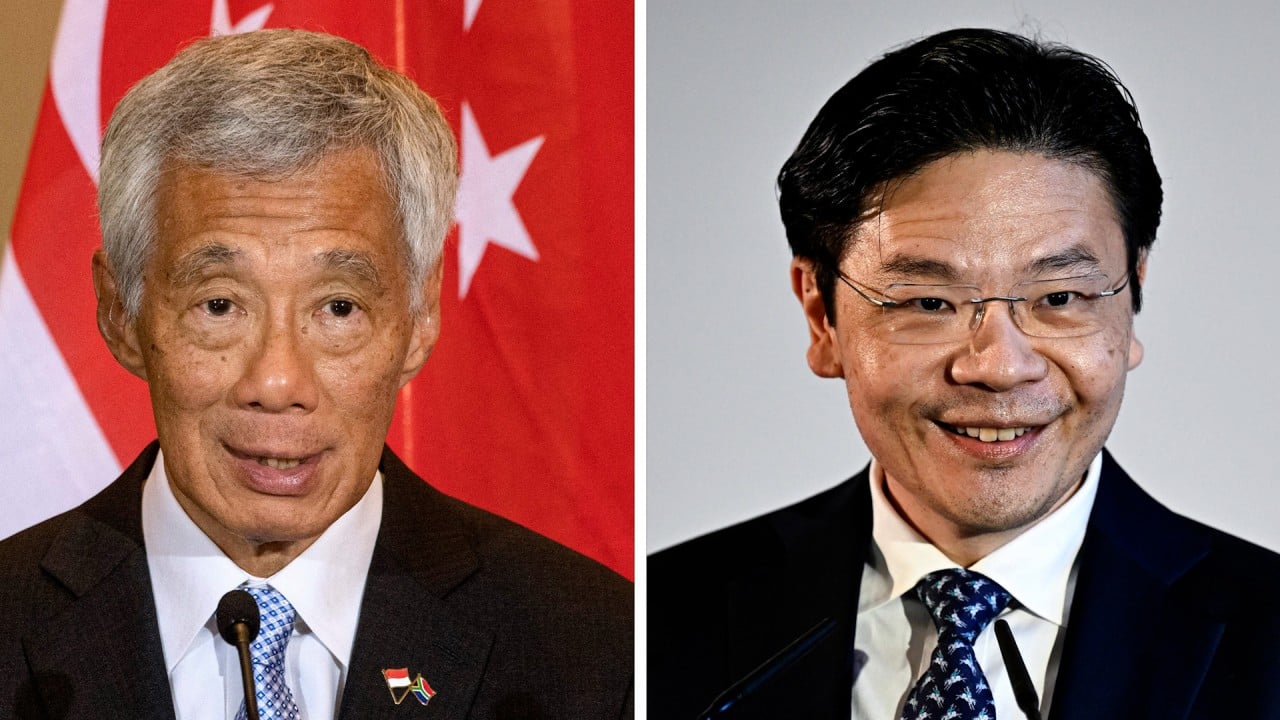
Who is Singapore’s Lawrence Wong? How an underdog with no grand political ambitions became the next prime minister
- Those who know Wong say he is a ‘highly relatable political leader’, and laud him for being a team player, a quiet go-getter and a persistent doer
- Wong will have his political mettle tested not only at home, but also leading Singapore in a far more turbulent world amid US-China rivalry
“I had not yet found my calling in public service,” Wong, who was then at the Ministry of Finance at the turn of the millennium, said in a media interview.
“So I was getting restless and [the] private sector beckoned at that time, beckoned with more enticing offers, a better job, more salary. I was very tempted to leave. In fact, I had an offer and I was going to leave.”
But word soon reached his then-boss, former permanent secretary Lim Siong Guan, who persuaded him to be “patient” and seize opportunities unavailable in the private sector.
That advice proved invaluable as Wong stayed the course and soon found himself working on national policies and “doing a lot of meaningful work, work that I certainly could never have done in the private sector”.

Singapore has Lim to thank for providing wise counsel, as Wong moved steadily up through the public-service ranks, to reach the pinnacle two decades later. On May 15, he will be sworn in as the city state’s fourth prime minister since independence.
“He clearly had a sharp mind, was able to think out of the box, prepared to try the new and the novel,” Lim told This Week in Asia.
Wong was “also a good team player, not the prima donna but the willing worker”.
Lim would be among many who would laud Wong to This Week in Asia for being a team player, a quiet go-getter and a persistent doer.
From their assessment, Lawrence Wong’s journey to the top political office in Singapore is a story of the understated overachiever who disarms with his humble demeanour and delivers with hard-wired determination.
Lawrence Wong to become Singapore PM on May 15
“I pledge to give my all in this undertaking, every ounce of my energy shall be devoted to the service of our country and our people.”
At 51, Wong has spent his entire career in public service, posted to different ministries and once was the chief executive of the Energy Market Authority. When he first entered politics in 2011, he was identified by local media as among the “fabulous five” who would be catapulted to senior positions in various ministries almost immediately after their electoral victories.
Wong was then 38 and the youngest of the so-called core 4G or fourth-generation leadership. Two others deemed more senior than him received plum assignments – Heng Swee Keat, a former Monetary Authority of Singapore chief, was 50 and newly minted as education minister, while former army chief Chan Chun Sing, 41, became acting minister for community development. Another high-ranking civil servant, Ong Ye Kung, lost in that election and had to sit out politics until 2015.
At that time, the names more likely to trip off people’s tongues as speculation grew over who would be the front runner to succeed Lee were Chan Chun Sing or Ong Ye Kung. Few among Singapore’s chattering classes guessed it would be Wong.
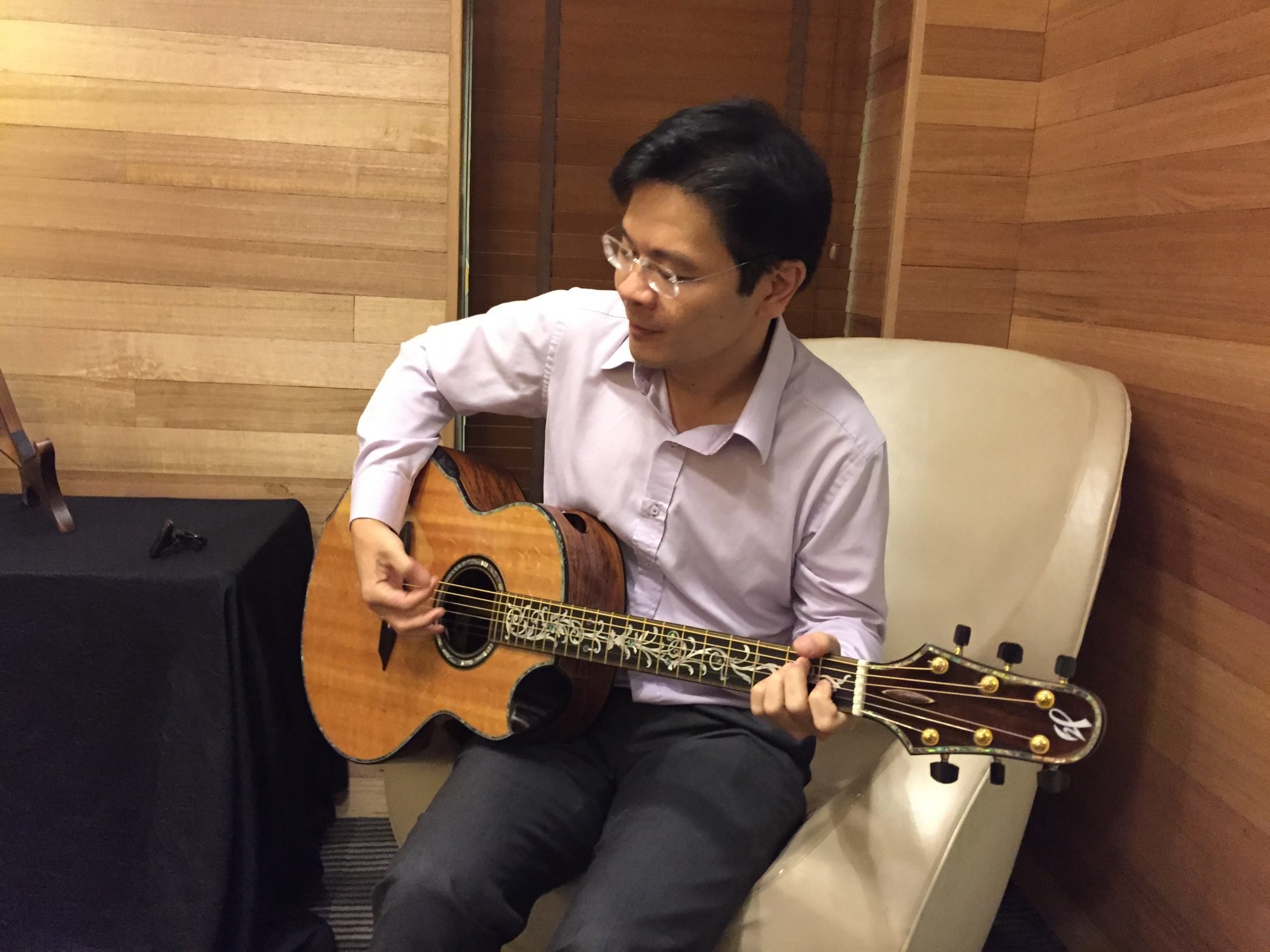
In the meantime, he was presenting a side of himself on social media previously only known to friends: his love of music through playing the guitar, and his golden retriever, Summer.
Yet Wong will not be in for an easy ride. The honeymoon period for the new man at the helm will end as soon as elections have to be called. With the handover on May 15 and elections to be called by November 2025, Wong has to lead the charge of a ruling party that has been in power for an uninterrupted 65 years and is not in any mood to cede an inch of ground to the opposition.
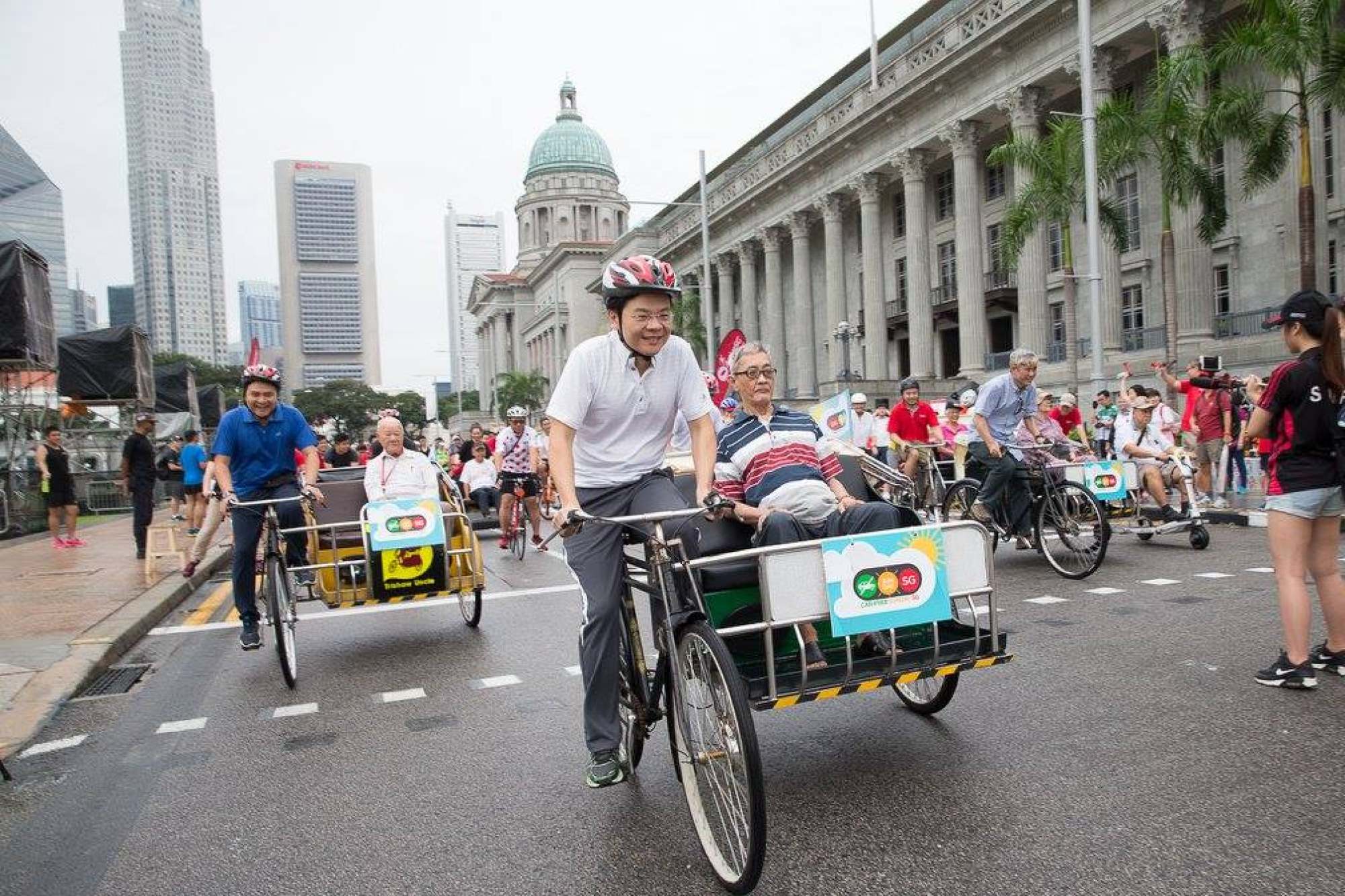
The key question now for the PAP is whether the loss of support can be staunched, if not reversed, or if the voters’ desire for more opposition will need to be satiated further, with more of these constituencies slipping from the ruling party’s grasp. Defending the political status quo and securing a credible mandate will be among Wong’s most immediate and biggest political tests.
Is ‘Forward Singapore’ a soft launch of a manifesto by PAP’s Lawrence Wong?
“A new leader needs time to establish his relationship with the people and with the international community,” Han Fook Kwang, a veteran editor, wrote in a commentary last November.
“This is more so for Mr Wong given how short a time he has had from being recognised as the anointed one to being the top man – just two years and seven months if he takes over in November next year, and even shorter if the transition happens earlier.”
Despite the daunting days that lay ahead for Wong, those who have known and worked with him told This Week in Asia they were largely optimistic, as they cited their regard for him as someone capable of punching above his weight, whatever the odds.
Who is Lawrence Wong?
Back when Wong was pursuing a Masters in Public Administration at the Harvard Kennedy School in 2003, he lacked a “politician’s swagger” that some of his other peers possessed, said Sudhir Thomas Vadaketh, his then-schoolmate.
“There are a lot of other people who had more of a politician’s swagger, but not Lawrence. I just thought he was a career bureaucrat, and maybe he’d one day become a permanent secretary or something.”
Vadaketh admitted he never pictured Wong becoming prime minister of the country. “This perhaps gives him the element of surprise in any race, the underdog’s advantage. I have heard that his ascent up the governmental and political ladders had caught some of his peers unawares,” Vadaketh, who is also editor-in-chief of Jom, a weekly magazine about Singapore, wrote in a 2021 blog post.
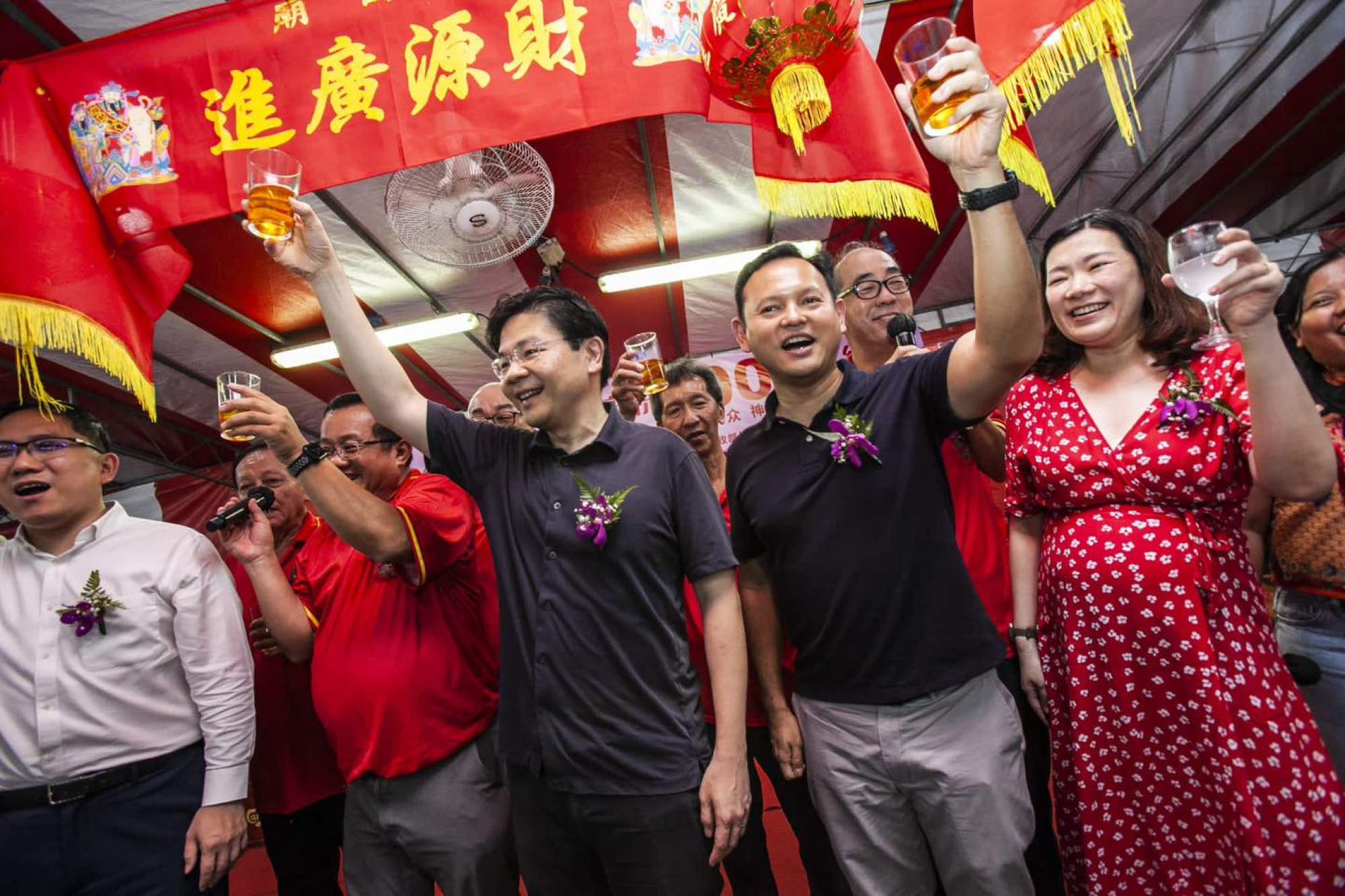
Unlike many of his 4G peers who attended elite secondary schools, Wong enrolled in schools close to the Marine Parade public housing estate where he grew up, a decision he described as “very natural” as it would allow him to be closer to his friends.
This included attending a primary school where his mother taught and he was known as “Mrs Wong’s son”. His father was a roofing materials sales executive and a brother, two years older and now an aerospace engineer, completed their nuclear family. He obtained a scholarship to study economics at the University of Wisconsin-Madison – not the usual Ivy League or Oxbridge destinations craved by Singapore’s ruling class.
Growing up, Wong spent his Sundays at Bedok Methodist Church. He was described as a “dedicated youth leader” who showed up at church religiously and sometimes even returning on weekdays to organise band practices, said Ling Kin Yew, who served alongside Wong at the time, and is now a pastor at Fairfield Methodist Church.
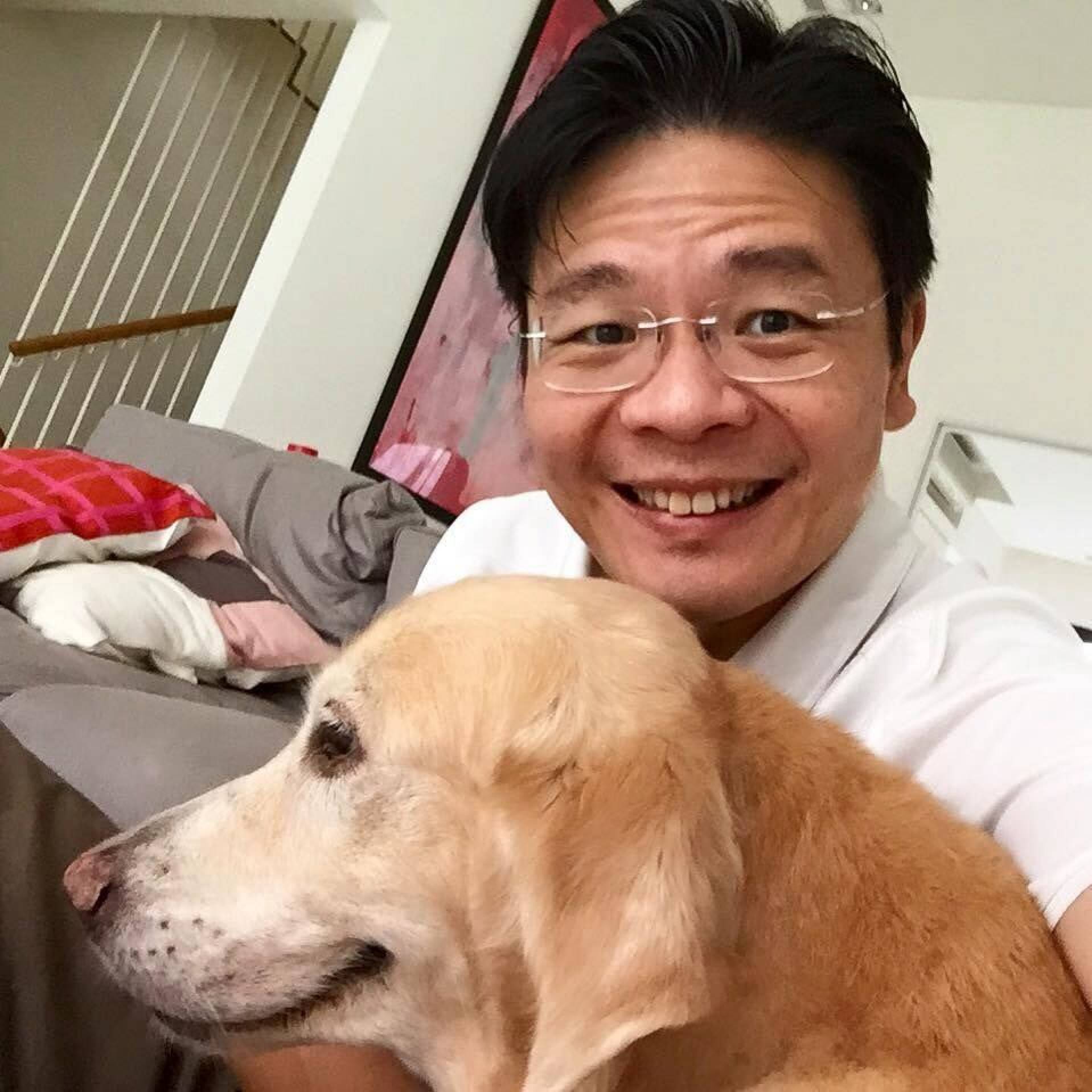
Life in those formative years was placid, according to past reports, save for a few ripples. At nine, Wong and his brother had just returned home from a neighbourhood coffee shop when two knife-wielding robbers pounced on them at the door, tied them up and ransacked their five-room flat.
In university, he and a roommate played the guitar and busked, strumming jazz and rock hits. On TikTok today, he has around 120,000 followers who tune in for his music and acting out of viral trends. Describing canines as pets who “love extravagantly”, his adoration for his dog Summer over the years portrays another relatable side to him. Another factoid: he is a minister who can ride a motorbike – a rare skill among his colleagues – complete with the trademark biker gear of a black leather jacket.
Those who know him say it is this “studious but not square dude” vibe that served him well when he was co-chair of the republic’s Covid-19 task force back in 2020, showing his grasp of detail and his patience in setting out clearly the different policy shifts.
Singapore’s first social media PM: can Lawrence Wong win Gen Z votes?
“He has remained unassuming and is a highly relatable political leader,” said Lionel Yeo, Wong’s former finance-ministry colleague and a fellow Officer Cadet School trainee. “During Covid, many Singaporeans came to appreciate his steady leadership in steering the country through that crisis. He seemed to step naturally into the role of building consensus and communicating policy.”
Wong has also shown a side that’s willing to tackle prickly issues, said analysts, such as openly speaking about what will happen to the 99-year leases on public housing when they run out, describing them as “difficult questions”. It caused a ruckus but he navigated through it, said a former MP who declined to be named. “He bit the bullet, took a hit but didn’t squirm in Parliament,” the 70-year-old said.
Similarly, in 2021 during a simmering debate on whether there was “Chinese privilege” in Chinese-majority Singapore, Wong acknowledged racism existed. He urged the majority community to do its part to make minorities feel comfortable and for people not to imagine slights when none might exist.
Even before the pandemic, a younger Wong had already developed a knack for relating to people, Yeo said. Recalling a group climb to the summit of Mount Kilimanjaro in 2002, the highest peak in the African continent, Yeo said that Wong was able to lift the spirits of the group.
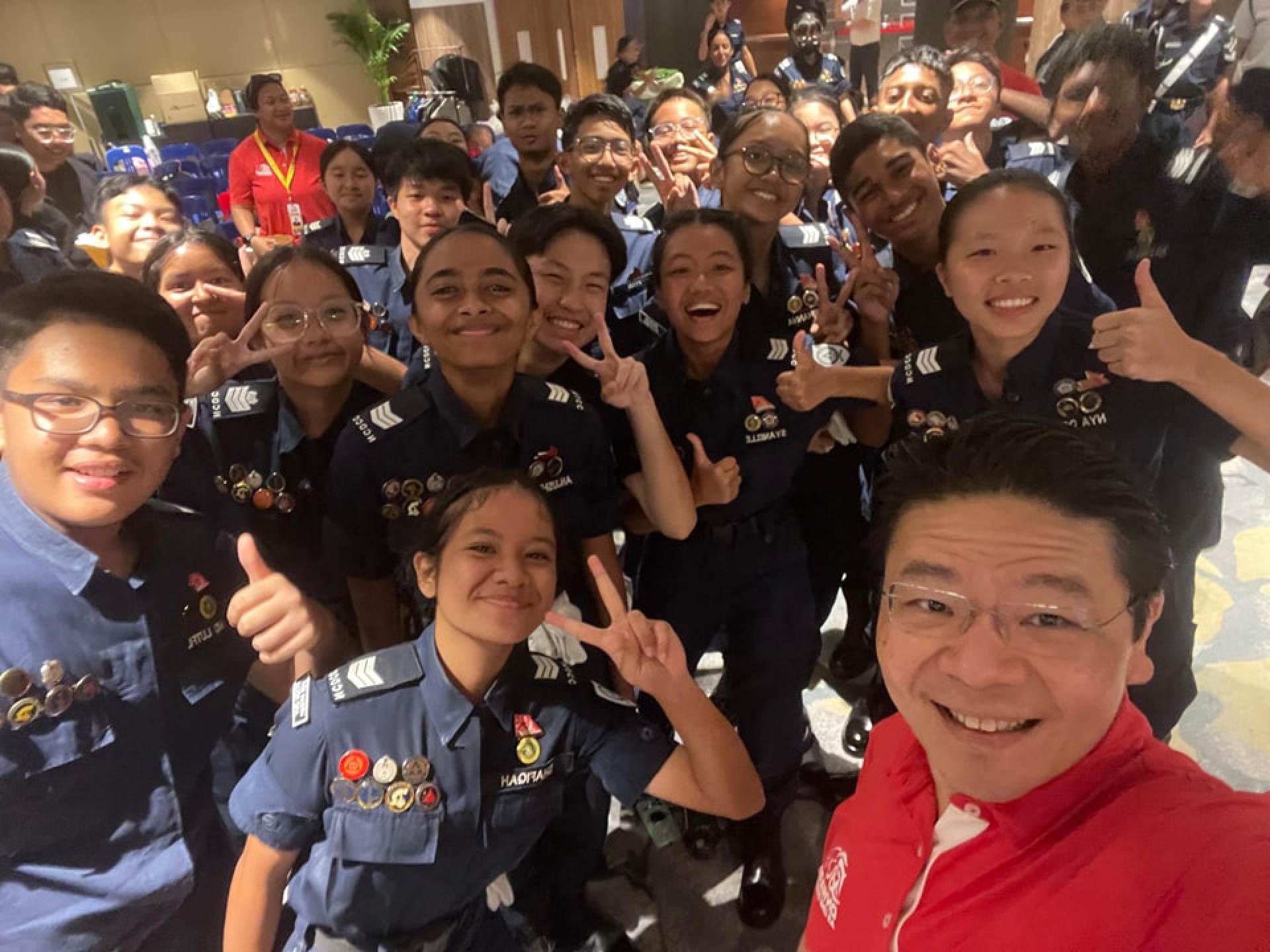
“Many of us were suffering from altitude sickness and progress in the windy and snowy conditions was slow. Although he was probably also finding the going rough, Lawrence was always ready with a smile and an encouraging word or two, and this helped the group to summit together,” he said.
Wong was “well-liked by his colleagues”, Yeo said, because “he was kind and fun to be with, smart yet unassuming” and won his bosses over with his flair for policymaking and responsible work ethic.
These were some of the reasons he stood out even in his younger days, said Donald Low, another former finance-ministry colleague.
“Among the cohort that entered parliament in 2011, I thought he was the most likely to make prime minister. Not only did he have the requisite technical credentials, but I thought he was also the most personable, approachable, and relatable among his peers in the PAP,” he said.
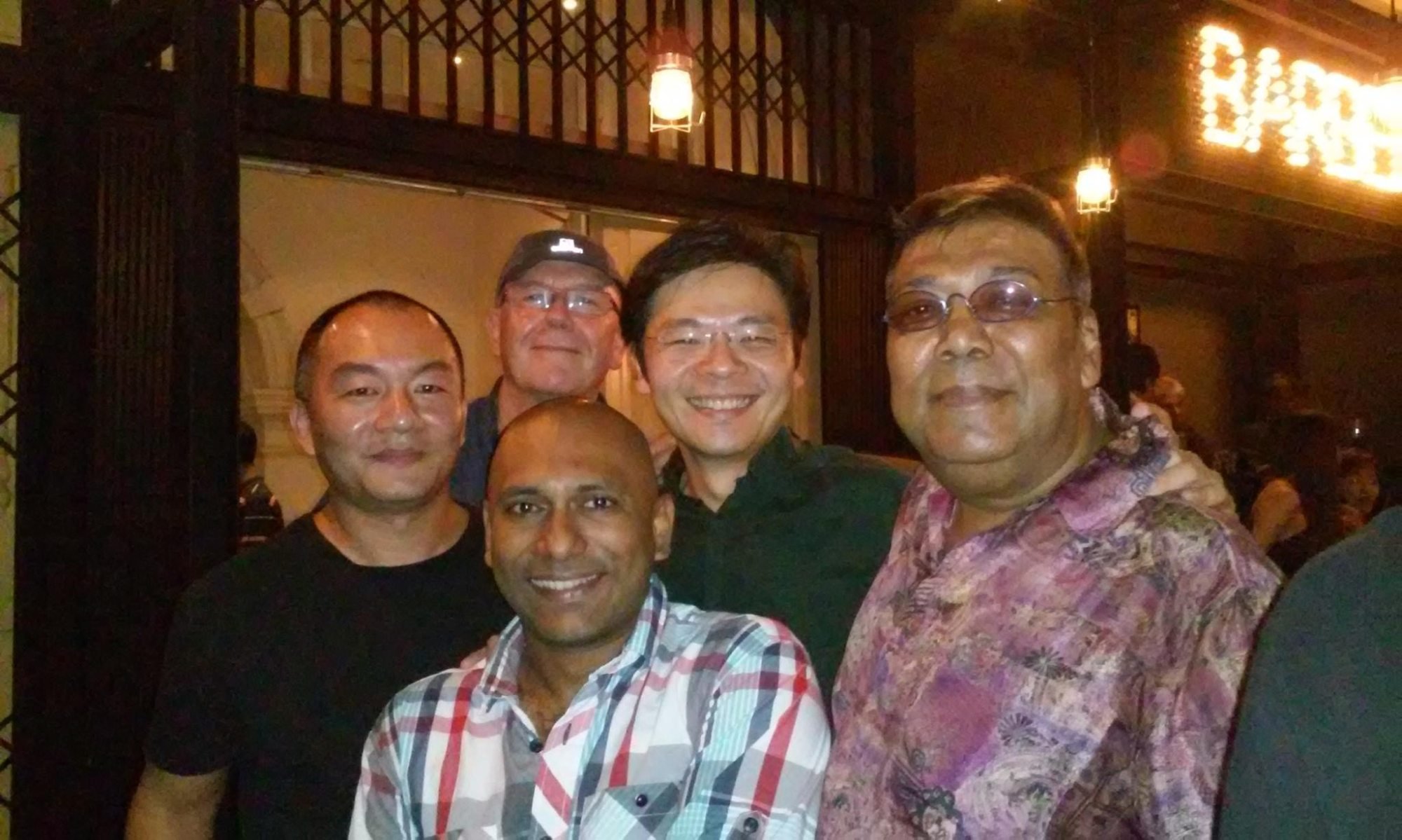
Some also remember him for his eclectic musical hobbies. “He was not your usual scholarly type. He definitely had a more diverse [range of] interests and background … than most of the other leaders,” Vadaketh said.
A friend for close to 10 years, Danny Loong, chief executive officer of lifestyle brand Timbre Group, said he had invited Wong, who was the culture and youth minister at the time, for a casual jamming session back in 2014, where the two bonded over a shared love for BB King, Eric Clapton and Creedence Clearwater Revival.
“Our jamming sessions and casual chats brought us closer, as we often played similar songs and shared a deep appreciation for music and guitars,” he said.
Loong said it was a “pleasant surprise” to find out – not from him but from the media – how Wong had been tipped to be the next prime minister. Wong had a way of connecting with the youth and was “savvy with social media”, he said.
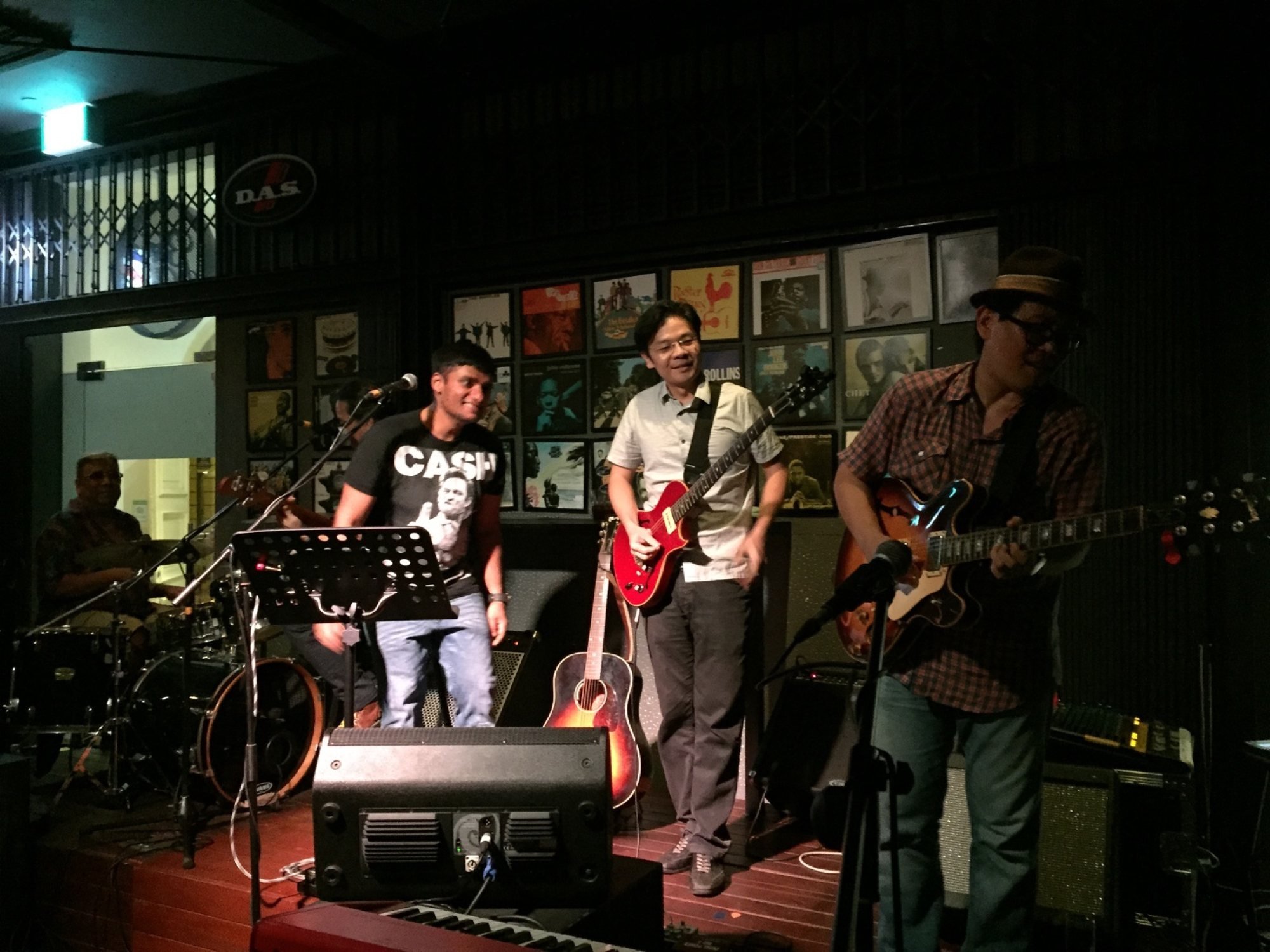
Indeed, Wong and his team appear to have slayed the social media game, earning themselves titles such as “daddy” and “bae” from the country’s internet-savvy youth.
Wong and his cabinet ministers have expanded their reach to newer social media platforms – from Facebook and Instagram to TikTok and podcasts – to share lighthearted vignettes of their lives and discuss policies in a simple, easy way.
A 10-second TikTok video Wong posted in 2022, which shows him removing his mask against a dramatically slowed down Blackpink track, garnered close to 2 million views, with many young netizens flooding the comments section with positive emojis.
The casual ways of connecting, though, come with a clear intent of forging bonds backed by cold hard cash. The government is one of the biggest advertisers in the country, with the Ministry of Communications as the third-largest spender in the first half of 2022, according to Nielsen, a data and market measurement firm.
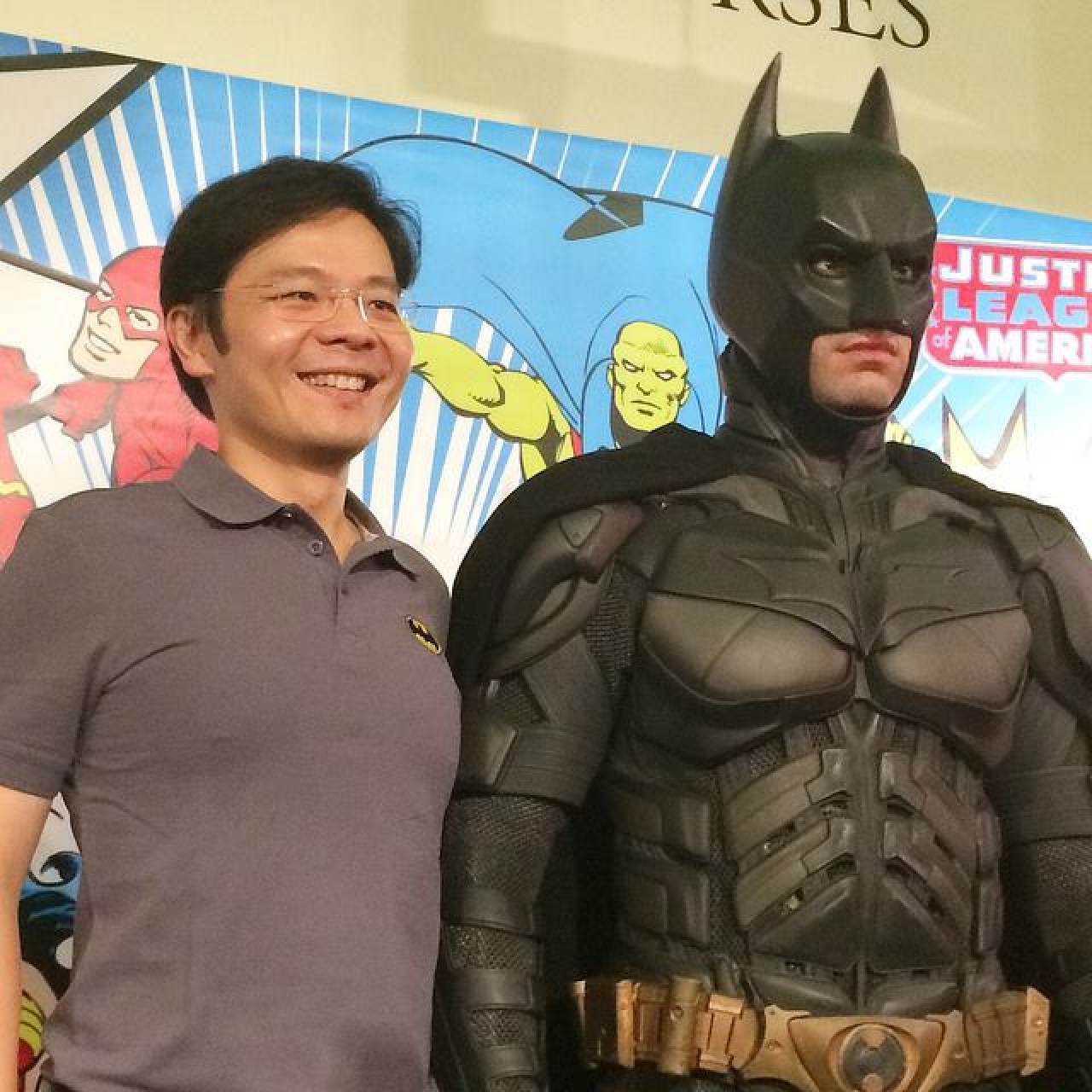
While Wong and team benefit from such investments to strip away perceptions of PAP leaders being elitist or aloof, analysts say the question remains whether this would be enough to secure voters’ support.
The last pandemic-era general election happened when Singapore was at its “youth peak”, with those aged between 25 and 35 making up a significant portion of its population pyramid, Chan Heng Chee, ambassador-at-large, said during a lecture in 2020.
“Singapore’s challenges and opportunities today are necessarily different from those of the immediate post-independence period. Singapore was a developing economy. It is now a developed economy. Singapore was in the middle of the Cold War, it went through a period of globalisation, [now] it finds itself in the midst of a different type of major power competition,” said Chong Ja Ian, a political scientist at the National University of Singapore.
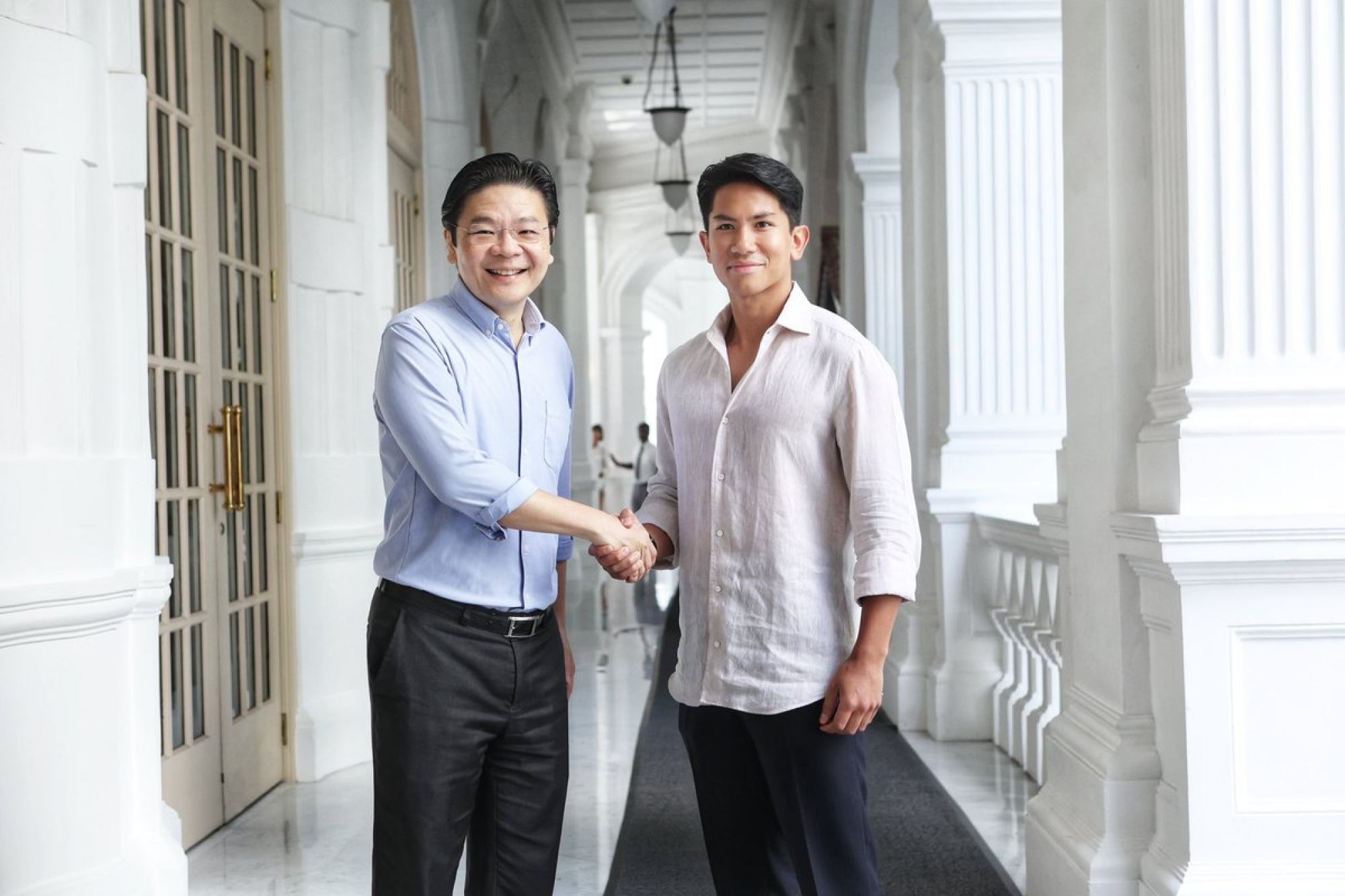
“The needs of Singapore and Singaporean voters are different today. It is not the 1960s any more.”
So far, Wong has done enough to stand out from his peers to be the “chosen one”. He is now also fairly well-known to the average Singaporean. But while Covid-19 was his baptism of fire, leaders are not forged from one crisis, but many, analysts say.
Wong will have to carry the banner at the next general election, due to be called by November 2025, but tipped to happen as soon as this year. When the country’s second prime minister, Goh Chok Tong, called for an election nine months after taking over from Lee Kuan Yew, the ruling party suffered a setback and Goh needed time to recover his position.
“As to whether Lawrence Wong will struggle, it is up to him to make a case for himself to Singaporean voters. He has not really done that to date, except to say that he will continue with what he inherited from his predecessor,” Chong said.
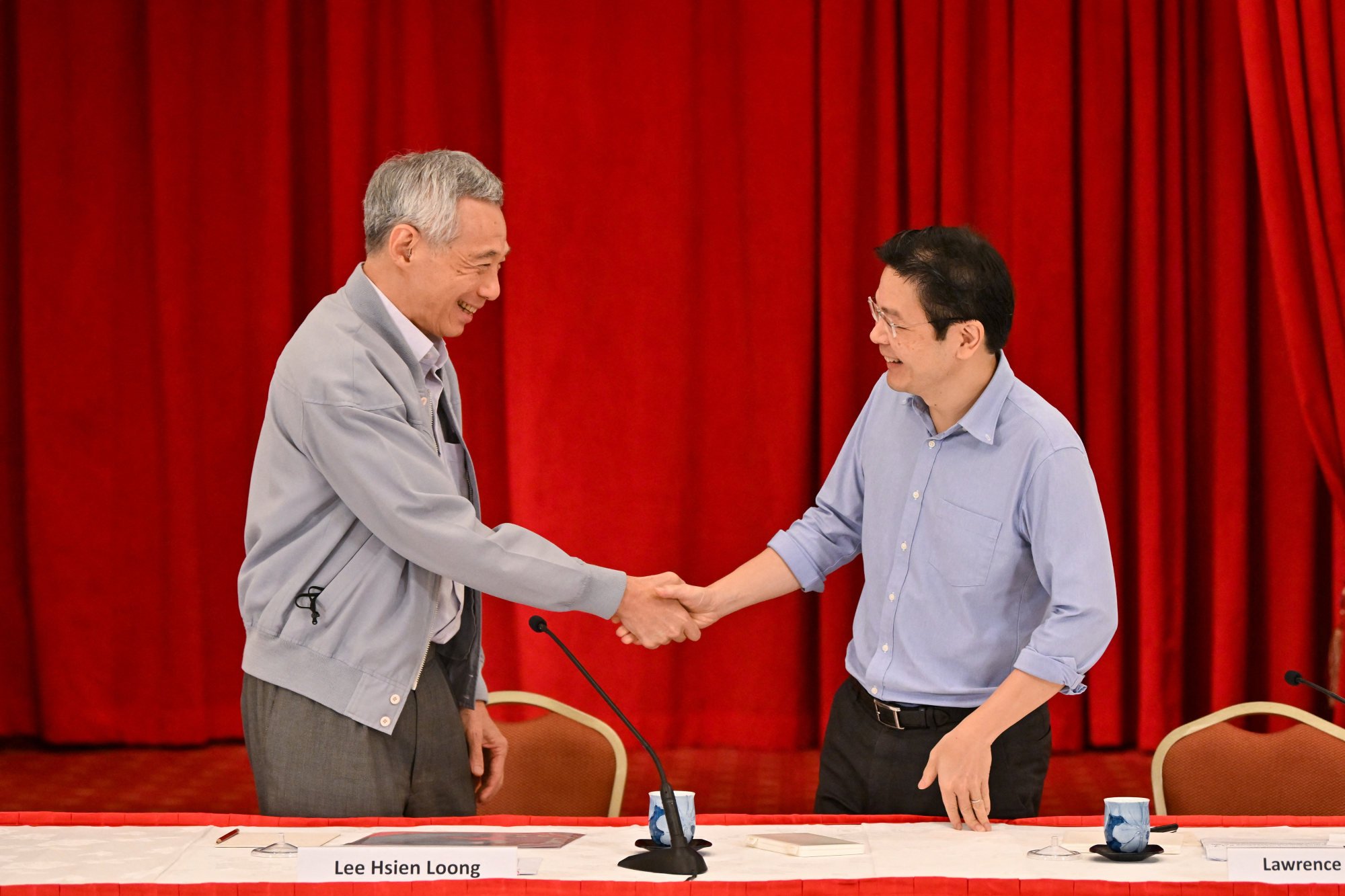
What’s next?
Most expect that Wong’s administration – in terms of its foreign and domestic policies – will follow the path set out by Lee, who will become a senior minister in line with the tradition of former prime ministers serving a few terms as elder statesmen offering advice to the younger team.
This is viewed as a positive arrangement for the most part, as experience matters, but whether the new man can come out from the shadow of his former boss will be keenly watched. Wong himself has said he would go with continuity but also change, with no further details yet made clear.
“So far, Wong and Lee have been emphasising continuity, right down to keeping Lee on as senior minister and [a member of] the third generation in the cabinet,” said Chong, adding that Wong had yet to articulate how he intended to transform public sentiment on key issues such as anti-discrimination and wages into concrete policies.
“As a result, an impression is that the most Wong may do is to make tweaks to current policy and bet that they will be sufficient for Singapore in the more tumultuous and fractious world that both Wong and Lee have described Singapore as now inhabiting.”
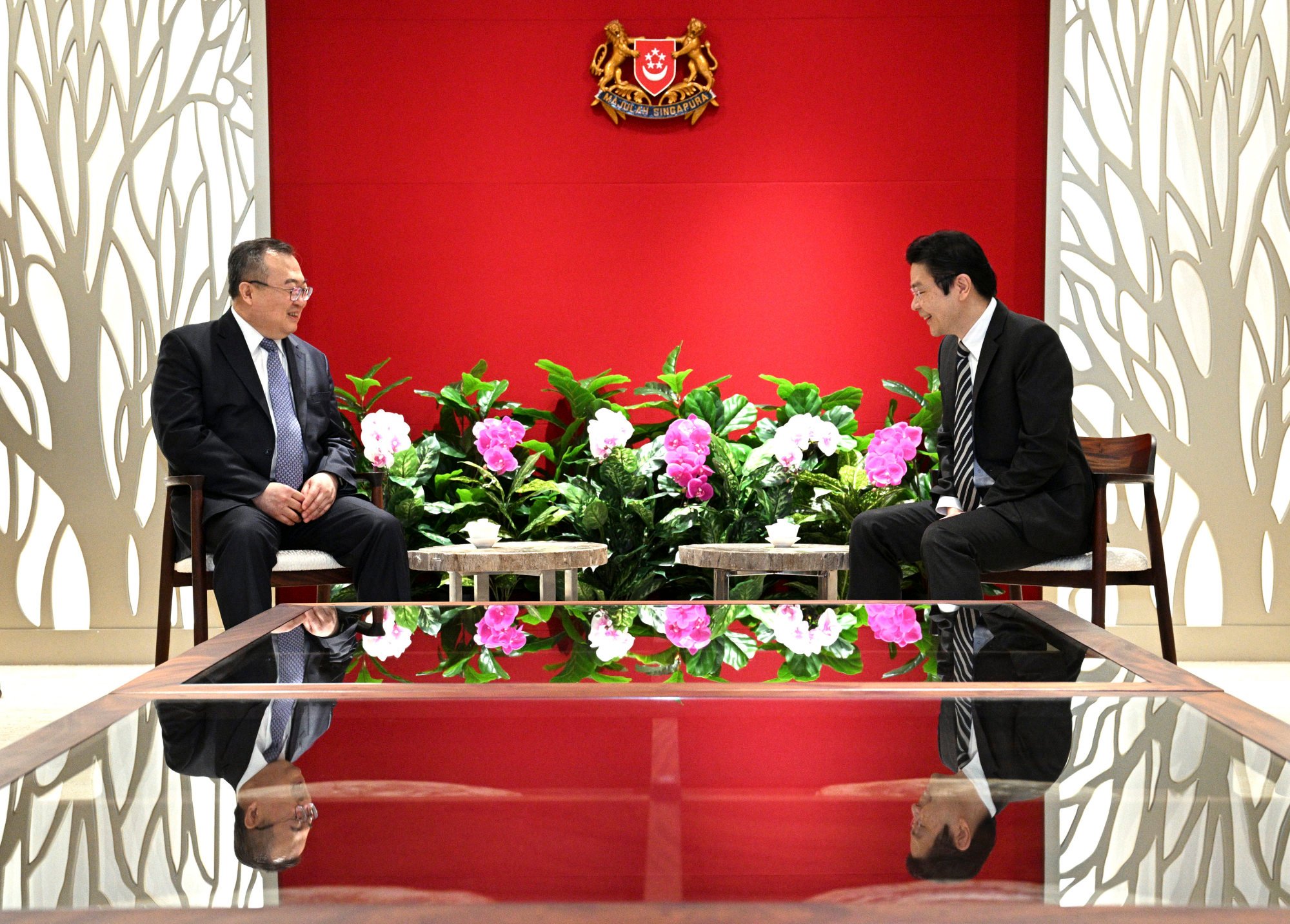
In a similar vein, Low, who is also a professor of practice at the HKUST Institute for Public Policy, said: “Politically and temperamentally, Lawrence is also quite conservative in the sense that he prefers incremental over radical change.
“His leadership and communication styles may differ from the current prime minister, but by and large, I expect domestic policies to be largely unchanged, at least in terms of their essential features.”
Political commentators say that Wong’s consultative personality and openness are valuable attributes to effect change. But he will need more than that – gumption and courage to go against conventional wisdom when merited – and the right balance of a hard and soft approach, as well as the dexterity to mix both when dealing with the opposition or the government’s critics.
If he goes too hard on them, he will alienate the fence-sitters and those who recoil at the memory of the ruthlessness of Lee Kuan Yew in taking on his foes. If he goes too soft, he will prove ineffective. He needs to take care of his base too and not risk alienating them, observers note.
‘Careful’: Singapore’s Wong warns China about growing influence
“To have oversight of the executive by people and parties with different sets of interests, concerns, and considerations to restrain potential excessiveness in one direction or another is not a personality issue. That is a structural issue that no individual can alone affect,” Chong said.
Wong alone might not be able to face up to the more conservative “old guard” in cabinet, Vadaketh said. “My worry with Lawrence is that while he himself is very consultative and open and very down to earth. He won’t … have enough experience to push back on the conservative side of the PAP.”
Ultimately, “the proof of the pudding will be in the eating”, said Chong, adding that there was still much work to be done for Wong to prove himself, both at home and abroad.
“Wong has not been particularly outspoken on foreign policy and security issues, perhaps given that he has never held those portfolios,” he said. “The hope – and no one really knows at this point – is that he can hold his own on the foreign policy and security fronts.”
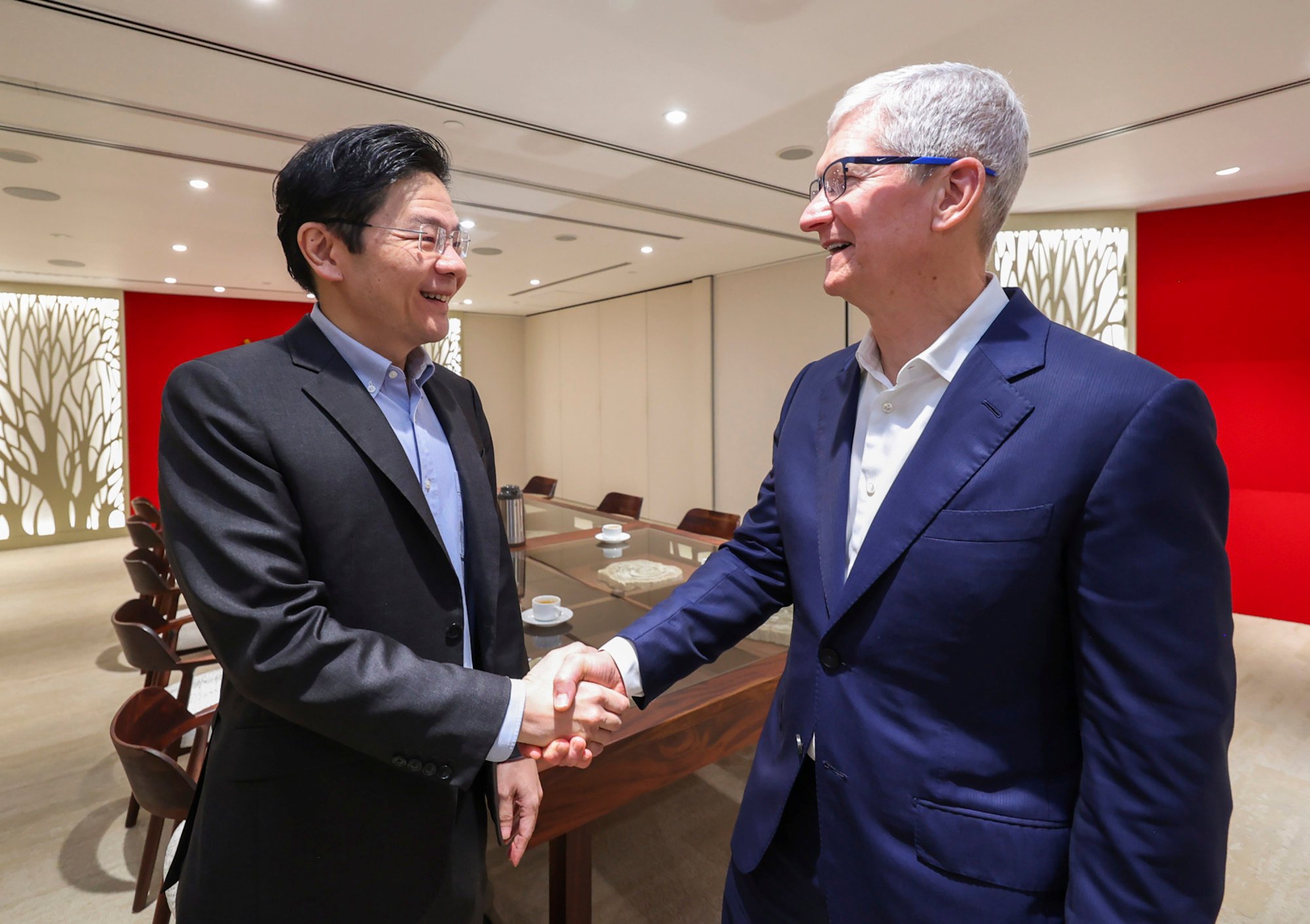
But for his early advisers, like Lim Siong Guan, the big picture is what matters: Wong’s ability to lead Singapore well into an unpredictable future.
“The challenge DPM Wong faces as our next PM is to lead Singapore for a future 30 years down which we cannot see anywhere in the world today – no one has got there. Singapore has developed, since our independence, extremely effective ways for responding and reacting to situations,” he said.
“The great challenge for Singapore is to similarly develop competency and effectiveness in creating the future 30 years down rather than just reacting to opportunities or copying others.”
As to naysayers who fear his shortened runway to the post would be a handicap, Lim had this to say: “It is not simply the runway of his past that is critical but his full capacity for imagination, leadership, communication and conviction to bring Singapore to a new future.”
Wong himself has said: “I am ready for my next assignment.” Singapore awaits.


